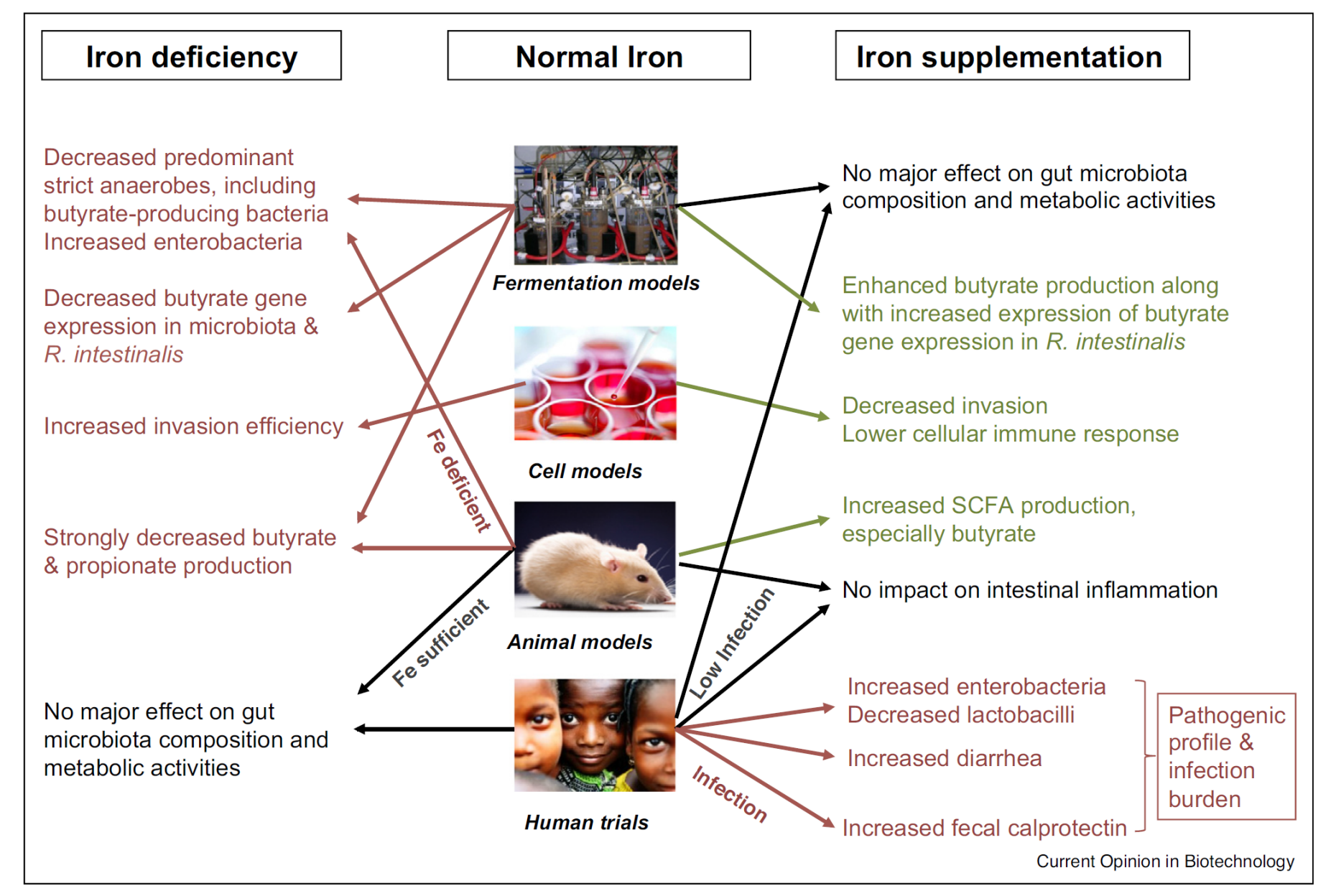Evaluation of micronutrient powder to maximizing effects on iron bioavailability and assessing effects on the gut microbiota - Bill Gates NIH & Swiss National Science Foundation & Industry

Iron deficiency anaemia (IDA) is major public health problem worldwide and infants and young children in developing countries are particularly vulnerable. Micronutrient powders (MNP) are a promising vehicle to provide infants and young children with sufficient iron. However data from our studies suggest that there could be significant risk of iron supplementation for infant living in regions of high contamination and that are heavily colonized with gut pathogens. Infants in developing countries have high rates of IDA, and iron containing MNPs can be effective in reducing IDA, but they have adverse side effects, including an increase in diarrhea, a major cause of morbidity and mortality in Sub-Saharan Africa.
The aim of this study, lead the Laboratory of Human Nutrition (LHN-ETHZ) and in collaboration with Jomo Kenyatta University of Agriculture and Technology (JKUAT) in Nairobi, is to provide a breakthrough in improving the safety and efficacy profile of iron fortification in infancy. More specifically research carried out at LFB focus on the characterization of the effects of different MNP components and formulation on the infant gut microbiota composition and activity and on gut pathogens. This research is carried out using advanced in vitro continuous intestinal fermentation models of the PolyFermS platform, mimicking an infected gut of infant in developing countries with low hygiene conditions. Furthermore a randomized double-blind controlled intervention study with MNP with and without iron and supplemented with a promotor for gut health is currently carried out with 6-10 months infants in Kenya (under the direction of LHN). Different strategies are being tested to minimise the adverse effect of unabsorbed iron on the gut microbiota. Readout included anemia, iron status, iron absorption using stable isotopes, inflammation, microbiome composition and metabolism, microbial pathogens, incidence of diarrhea and other infections, and Hookworm infection.
